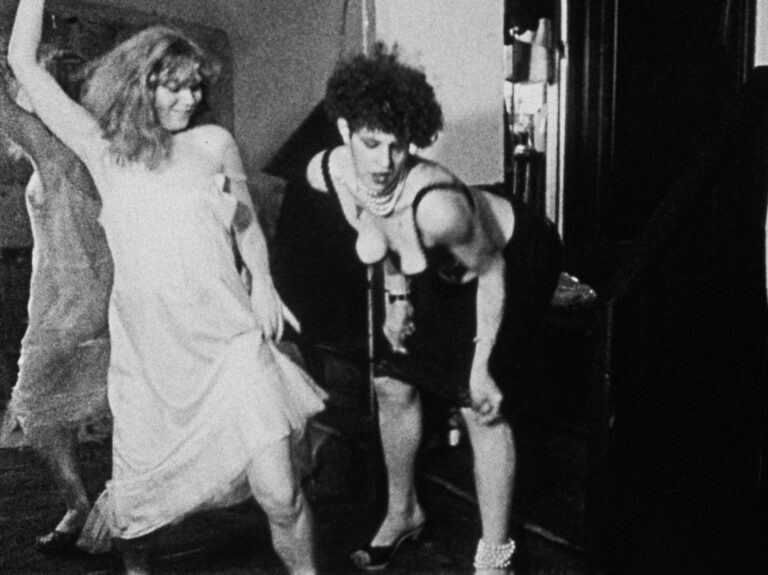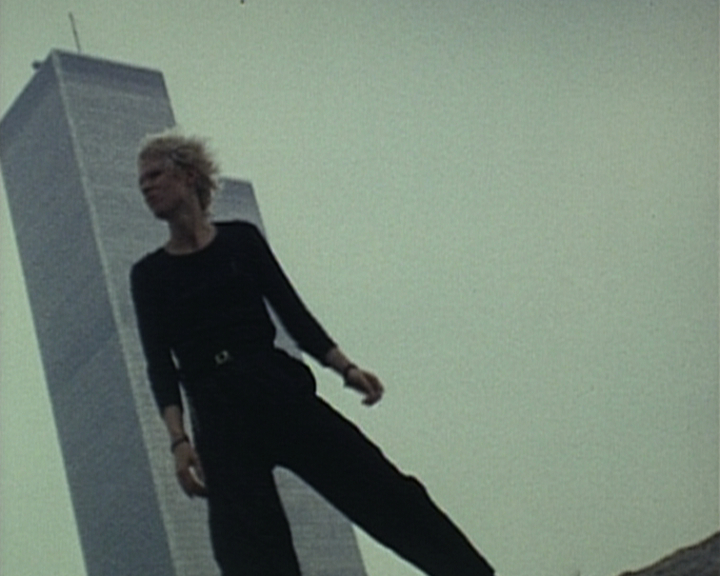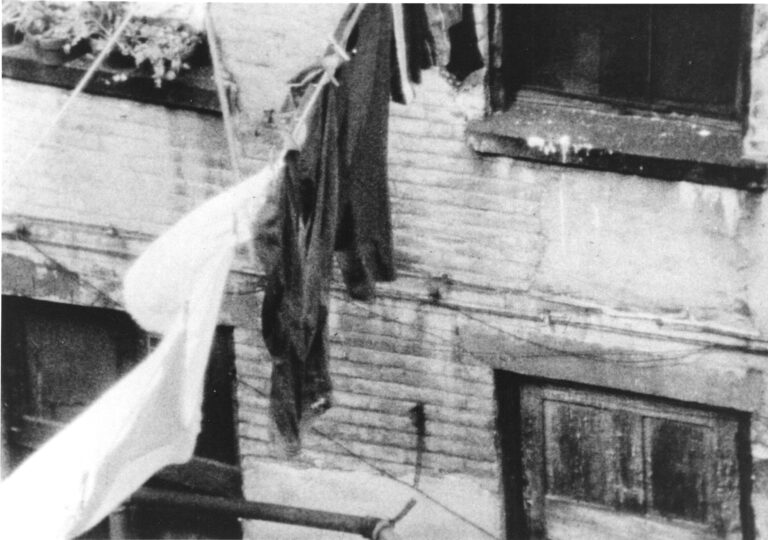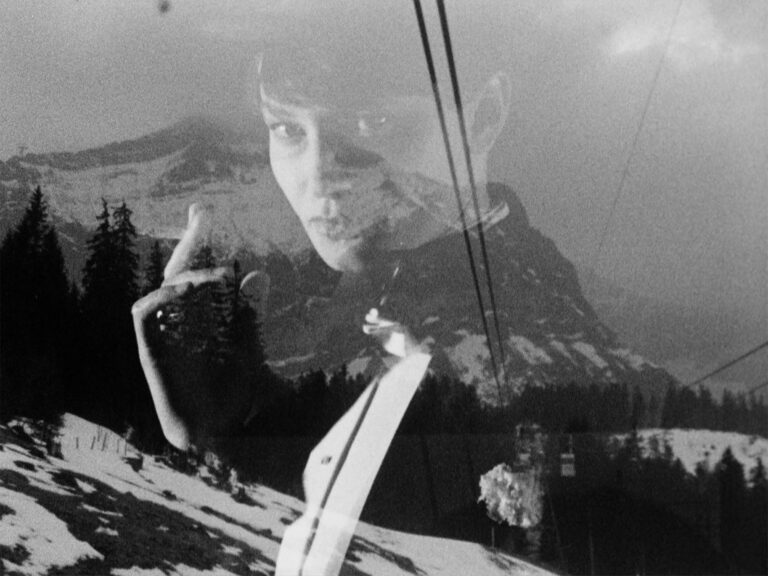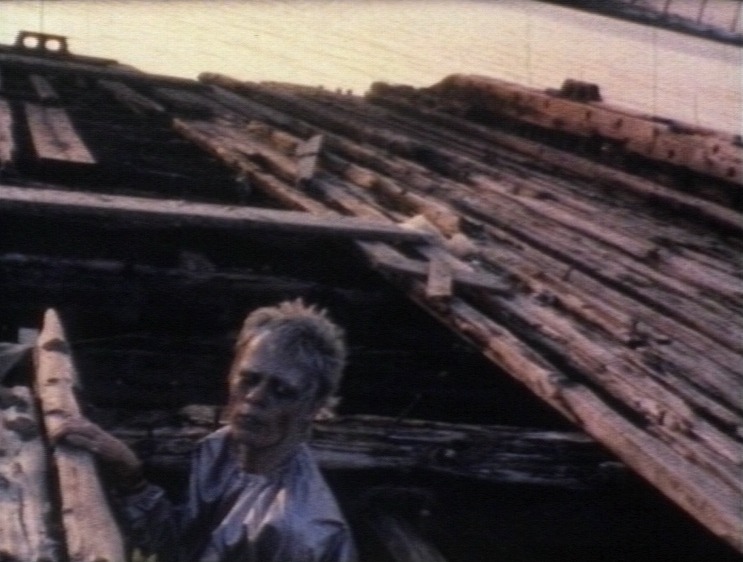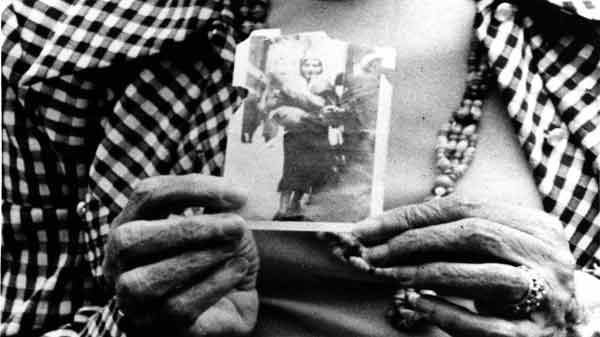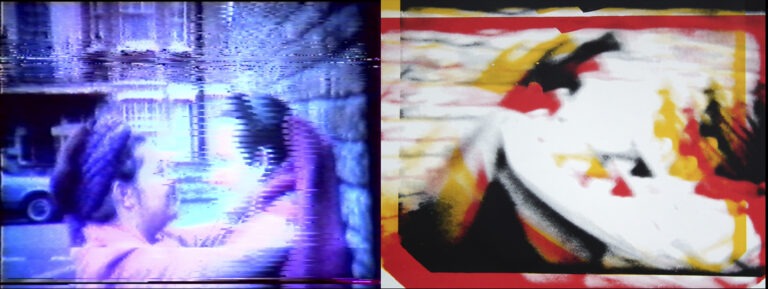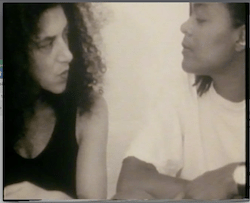Experimental Film and Punk: Feminist Audio Visual Culture of the 1970s and 1980s is a new book by artist and academic Rachel Garfield which breaks new ground in exploring the rebellious, feminist Punk audiovisual culture of the 1970s and 80s by tracing its roots and its legacies. This screening features a number of key works discussed in the book from Vivienne Dick, Abigail Child, Betzy Bromberg, Ruth Novaczek, Sandra Lahire, Tessa Hughes Freeland and Anne Robinson, all of whom offered a powerful, deliberately awkward alternative to hegemonic, conformist femininity and thereby created a new ‘Punk audiovisual aesthetic’.
Film information
Vivienne Dick, She Had Her Gun All Ready, 28 mins, 1978, Digital
Betzy Bromberg, Ciao Bella or Fuck Me Dead, 9 mins, 1978, Digital
Tessa Hughes Freeland, Baby Doll, 5 mins, 1982, Digital
Ruth Novaczek, Rootless Cosmopolitans, 13 mins, 1990, Digital
Vivienne Dick, Staten Island, 6 mins, 1978, Digital
Anne Robinson, Corridors, 21 mins, 1985, 21 mins, Digital
Abigail Child, Perils, 5 mins, 1983, 16mm
Sandra Lahire, Eerie, 2 mins, 1991, Digital
20:15 Post-screening event at Temple Bar Gallery & Studios
This screening will be followed by a free public discussion with Rachel Garfield about her book and the screening programme at 20:15 in Studio 6, Temple Bar Gallery + Studios. Book a free place on Eventbrite here.
Screening programme notes
Vivienne Dick, She Had Her Gun All Ready
Two women- one passive and resigned, the other aggressive and domineering – interact in various locations in New York city. The film explores the dynamic between them before ending with a showdown at the roller-coaster on Coney Island.
Betzy Bromberg, Ciao Bella or Fuck Me Dead
A personal film about love and mortality. Bromberg shows us a world of crowded New York streets and hauntingly empty interior spaces, graced briefly by wisps of childish energy and the provocation of nearly naked women. She deftly contrasts such vibrant exuberance with a sense of devastating loss, and the effect is at once brazenly personal (if elliptical) and incredibly powerful. Unfolding desire merges with the ever-present reality of the threat of losing what you love
Tessa Hughes Freeland, Baby Doll
Tessa Hughes-Freeland’s Baby Doll is a tiny slice of cinéma vérité from 1982 about the girls working the now defunct Baby Doll Lounge on Church and White St. in downtown Manhattan. It captures a moment before NYC got sanitized.
Ruth Novaczek, Rootless Cosmopolitans
Estelle and Lily are two Jewish women for whom keeping a kosher home and marrying a nice Jewish boy are not on the agenda. Alienated from themselves and wondering why ‘it isn’t exactly trendy to be Jewish’, Estelle and Lily meet each other and explore their Jewishness. They explore the stories of a mother and daughter in fifties Britain, a refugee from Vienna, and Israeli Iranian storyteller, a neurotic father, a Trinidadian woman, and finally the two women end up on a roof looking at Israel. Rootless Cosmopolitans mixes music, family and food to take a wry look at the myth of the Jewish princess and asks ‘What is a Jew?’
Vivienne Dick, Staten Island
A low budget sci-fi short, where an androgynous alien, played by Pat Place, emerges from the sea to sift through rubbish on a beach. This film was originally intended to be part of a longer collaborative work to be made by a group of women called Les Guérilléres – after the radical feminist book of the same name by Monique Wittig.
Anne Robinson, Corridors
Meditations on love, work, money and fear, moving in and out of consciousness in saturated colour. This is a 2015 digital version of an installation made with Super-8 Film, U-Matic Video and Silkscreen Prints.
Abigail Child, Perils
An homage to silent films: the clash of ambiguous innocence and unsophisticated villainy; seduction, revenge, jealousy, combat. The isolation and dramatization of emotions through the isolation (camera) and dramatization (editing) of gesture. I had long conceived of a film composed only of reaction shots in which all causality was erased. What would be left would be the resonant voluptuous suggestions of history and the human face. Perils is a first translation of these ideas.
Sandra Lahire, Eerie
A magical film loop, combining a Berlin lesbian decadence with falling in love in a cable car, high above the slopes of Mount Pilatus. Inspired by German expressionist filmmaking, with in-camera dissolves.
Programme notes courtesy LUX, London and London Short Film Festival
Biography, Rachel Garfield
Rachel Garfield is an artist. She is Professor in Fine Art at the University of Reading and Principle Investigator of a large AHRC funded grant (2019-2021) entitled The Legacies of Stephen Dwoskin’s Personal Cinema. She is author of Experimental Film making and Punk: Feminist Audio Visual Culture of the 1970s and 1980s, Bloomsbury (2022) and with Henry K Miller, co-editor of Dwoskino: The Gaze of Stephen Dwoskin, LUX (2022). Exhibitions and screenings of Garfield’s work include, The Whitechapel Gallery, The Hatton Gallery, Wolverhampton Art Gallery, Beaconsfield Gallery Vauxhall, Focal Point, London Short Film Festival and Open City Doc Festival and The Babylon Cinema Berlin, Espaciocentre, Tenerife Espacio De Les Artes, Oranim, Haifa, CCA Santa Fe, Arizona State University Museum, Aqua Art Fair Miami. Garfield’s work has featured in, “An ‘Other’ History: Feminist Art in Britain Since 1970’ Amelia Jones (eds. John Slyce, Adler, Phoebe), Contemporary Art in the United Kingdom, London: Black Dog Publishing, 2015; Steyn, Julia, “In the Hinterlands: Identity, Migration & Memory”, Cross-cultural Identities: Art, Migrants and the Metaphor of Waste, Steyn, Juliet, Stamselberg, Nadja (eds.)


